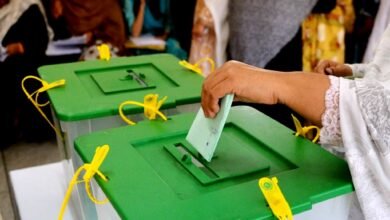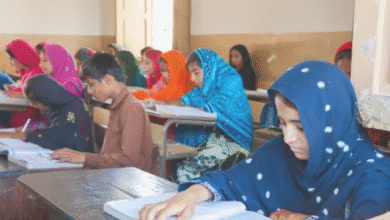
Government portals in Pakistan have revolutionized public service delivery by introducing digital solutions that enhance efficiency, transparency, and accessibility. Over the past decade, federal and provincial governments have launched numerous online platforms to streamline administrative processes, from tax payments and utility bills to healthcare and education services. These portals reduce bureaucratic hurdles, minimize corruption, and provide citizens with convenient access to essential services from the comfort of their homes. As internet penetration and smartphone usage grow across the country, these digital initiatives are playing a crucial role in modernizing governance and improving citizen-state interactions.
The shift toward e-governance in Pakistan reflects a broader commitment to leveraging technology for public welfare. Government portals in Pakistan, such as the Pakistan Citizen Portal, Ehsaas Program, and NADRA’s online services, have set new standards for accountability and service delivery. By automating processes that once required physical visits and lengthy paperwork, these platforms save time, reduce costs, and ensure faster resolution of public grievances. As more citizens embrace digital solutions, these portals are paving the way for a more inclusive and responsive government, ultimately strengthening trust in public institutions.
How Government Portals Are Improving Services in Pakistan
The Evolution of Digital Governance in Pakistan
Pakistan’s journey toward digital governance began in the early 2000s but gained momentum in the last decade with the proliferation of internet connectivity and mobile technology. The National IT Policy and Vision 2025 laid the foundation for e-governance, emphasizing the need for paperless, automated systems. Federal and provincial governments collaborated with tech firms to develop secure, user-friendly portals that cater to diverse public needs.
Notable Initiatives
One of the most notable initiatives is the Pakistan Citizen Portal, launched under the Prime Minister’s Performance Delivery Unit (PMDU). This platform allows citizens to lodge complaints, track their resolution, and receive feedback directly from relevant departments. Similarly, the Ehsaas Program portal enables underprivileged citizens to apply for financial aid, scholarships, and healthcare benefits seamlessly. Provincial governments have also introduced localized portals, such as Punjab’s e-Khidmat Markaz and Sindh’s e-Services, which offer birth registration, driving license renewals, and property tax payments online.
Key Government Portals and Their Impact
Pakistan Citizen Portal
The Pakistan Citizen Portal serves as a centralized complaint management system where citizens can report issues related to utilities, municipal services, and law enforcement. Since its inception, millions of complaints have been resolved, significantly improving public trust in government responsiveness.
Ehsaas Program
The Ehsaas Program’s digital portal has revolutionized social welfare by providing direct cash transfers, educational stipends, and health subsidies to low-income families. Its biometric verification system ensures transparency, reducing the risk of fraud.
NADRA’s Online Services
The National Database and Registration Authority (NADRA) offers online CNIC applications, family registration certificates, and passport services. This has drastically reduced long queues at physical offices, making identity verification faster and more efficient.
FBR’s Iris Portal
The Federal Board of Revenue (FBR) introduced the Iris Portal to facilitate tax filings, returns, and business registrations. Automation has minimized tax evasion and improved revenue collection.
Provincial Service Portals
Punjab’s e-Khidmat Markaz, Khyber Pakhtunkhwa’s Citizen Facilitation Centers, and Sindh’s e-Services provide region-specific solutions, from land record digitization to online court case tracking. These initiatives have reduced corruption and improved service delivery at the grassroots level.
Challenges and Future Prospects
Digital Divide and Accessibility Issues
Despite significant progress, a major challenge remains the uneven access to digital services across Pakistan. Rural areas, in particular, face connectivity issues, low internet penetration, and limited smartphone ownership. Many citizens, especially in remote regions, lack the necessary digital literacy to navigate government portals effectively. Bridging this gap requires substantial investment in internet infrastructure, affordable devices, and widespread digital education programs to ensure inclusive participation in e-governance.
Cybersecurity and Data Privacy Concerns
As government portals handle sensitive personal and financial data, cybersecurity threats pose a serious risk. Instances of data breaches, identity theft, and phishing attacks could undermine public trust in these platforms. Strengthening encryption protocols, implementing multi-factor authentication, and establishing robust cybersecurity frameworks are essential to safeguard user information. Additionally, clear data protection laws must be enforced to ensure transparency and accountability in how citizen data is stored and used.
Bureaucratic Resistance and Slow Adoption
While digital transformation aims to reduce red tape, some government departments still resist automation due to inertia or vested interests in traditional processes. Delays in updating legacy systems and a lack of technical training among staff further hinder seamless integration. To overcome this, comprehensive training programs for civil servants and performance-based incentives for digital adoption can accelerate the transition toward paperless governance.
Maintenance and Technical Glitches
Frequent system outages, slow processing speeds, and user interface complexities can frustrate citizens and discourage portal usage. Ensuring reliable server maintenance, regular software updates, and user-friendly designs is crucial for sustained engagement. Public feedback mechanisms should be strengthened to identify and resolve technical issues promptly.
AI, Blockchain, and Mobile Expansion
Looking ahead, emerging technologies like AI-powered chatbots can enhance real-time assistance, while blockchain can secure land records and financial transactions against fraud. Expanding mobile-based services through apps and USSD codes can reach populations with limited internet access. Additionally, integrating all government portals under a unified digital identity system (such as NADRA’s biometric verification) could streamline cross-departmental services, further reducing inefficiencies.
Public Awareness and Trust-Building
For government portals to reach their full potential, citizens must be aware of their benefits and functionalities. Nationwide awareness campaigns via radio, TV, and community workshops—can educate the public, especially in rural areas. Transparency in service delivery, coupled with visible success stories, will help build long-term trust in e-governance initiatives.
Read More: Digital Literacy in Pakistan: Bridging the Urban-Rural Divide
Conclusion
Government portals in Pakistan have undeniably transformed the landscape of public service delivery, marking a significant leap toward digital governance. By replacing cumbersome bureaucratic processes with efficient online systems, these platforms have enhanced accessibility, reduced corruption, and improved overall service quality. From streamlined tax filings to instant grievance redressal, digital portals have empowered citizens while fostering greater transparency in government operations. As internet penetration grows across urban and rural areas alike, these innovations are bridging the gap between citizens and state institutions, ensuring that essential services reach even the most underserved populations.
The continued expansion and improvement of government portals in Pakistan hold immense promise for the nation’s socio-economic development. While challenges like digital literacy and cybersecurity remain, sustained investment in technology infrastructure and public awareness campaigns can further amplify their impact. As these platforms evolve with advanced features like AI-driven assistance and blockchain-based record-keeping, they will play an even greater role in shaping a more accountable, efficient, and citizen-centric governance model. The success of these initiatives demonstrates Pakistan’s commitment to harnessing digital innovation for public welfare a crucial step toward building a more inclusive and progressive future.
What are the benefits of government portals in Pakistan?
Government portals streamline services, reduce corruption, save time, enhance transparency, and improve citizen engagement.
How can I access the Pakistan Citizen Portal?
You can register on the Pakistan Citizen Portal via its official website or mobile app using your CNIC.
Are these portals available in rural areas?
While urban areas have better access, efforts are underway to expand internet connectivity and digital literacy in rural regions.
Is my data secure on these government portals?
Authorities implement encryption and biometric verification to protect user data, though cybersecurity remains a priority.
Can I pay utility bills through government portals?
Yes, most portals offer online bill payments for electricity, gas, and water, along with other municipal services.











